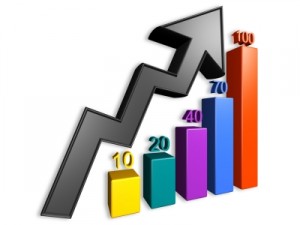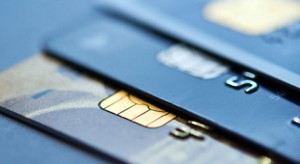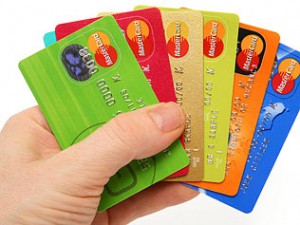June 9, 2012
 A good credit score is an important part of life. Many things will depend on a good or even excellent credit score. Your credit score affects all receiving approval to have a credit card, to owning a car and owning a home.
A good credit score is an important part of life. Many things will depend on a good or even excellent credit score. Your credit score affects all receiving approval to have a credit card, to owning a car and owning a home.
Ways to Improve Your Credit Score
Some people think that if you have had bad luck and your credit score is low that you just have to live with it. That is a wrong idea. There are many ways to improve your credit score and live a financially sound life.
Knowing your credit score is very important. You are able to request a copy of your credit report from each of the credit bureaus once per year. This can help to catch any mistakes that will involve your name and credit history before you end up in financial trouble. If a mistake is found you can contact the appropriate companies and credit bureaus to have the mistakes fixed as soon as possible.
It is also important not to run up your credit card balances. Keeping your credit card balances low will help to raise your credit score. Many people will apply for credit cards that they do not need in order to keep their balances on each low. This will lower your score. If you need a higher balance on a card you can contact the card company and ask for a credit increase. Believe it or not, if the credit company increases your limit your credit score will increase also.
You do not want to have a large number of inquiries on your credit report. This will drop your credit score by many points. The most important way to avoid these inquiries is to not apply for multiple credit cards. For every card that you apply for there is a credit check done on you. It works the same way when applying for a mortgage. You should work with a mortgage broker that will do one credit check and then shop around for you for the best rate. This minimizes the affect on your credit.
Sometimes it is unavoidable to fall behind on your payments due to unemployment, illnesses or family issues. If this happens you should call each of your creditors and explain the situation. Creditors will work with you to arrange a payment schedule. This will help to keep your accounts current. Believe it or not most creditors would rather have you work with them to pay than have your credit with them ruined. They do not want to have to call you with threats of foreclosure, repossession or threats of collection agencies and court dates.
In today’s world it is imperative to have a good credit score to live a financially happy life. If you pay your bills on time, do not apply for too much credit at one time, and work with your creditors in your time of need you can obtain a good credit score and live your life with the items that are needed.
Improving credit score can also be helpful to get loans from bad credit loans lenders. While a bad credit person might find some difficulties to get approved for their desired amount, there are some lenders those are approving bad credit people with little bit high interest rates. So repayment of such debts on time will definitely increase your credit score.
Tags:
bad credit,
credit,
Credit Card Debt,
debt,
economy,
loans,
money,
personal finance
May 22, 2012
 “The ability to pay your debt is important for your financial security. However, what happens if you are not able to make your payments? Succumbing to a disability could put you out of work for a long period of time. Your property could be destroyed in a bad storm before you finish paying for it. Credit card insurance could be something worth looking into.
“The ability to pay your debt is important for your financial security. However, what happens if you are not able to make your payments? Succumbing to a disability could put you out of work for a long period of time. Your property could be destroyed in a bad storm before you finish paying for it. Credit card insurance could be something worth looking into.
Credit Card Life Insurance
If you die, your credit balance will be paid off. This can help relieve your family of at least one of your debts upon your passing. Without insurance, your family will be asked to pay your debt for you. You should be aware that you may already be covered if you already have life insurance through another provider. Therefore, it may not be worth carrying.
Credit Card Disability Insurance
Those who become disabled will have their current balance paid off. Keep in mind that future purchases will not be covered under this policy. Also, you will need to carry a policy for any of the credit cards that you currently have. However, this may be a good policy to have if you are really concerned about your credit score.
Credit Card Property Damage Insurance
Items that are damaged or stolen will generally be covered under the terms of this type of policy. The downside to this coverage is that many different policies offer this coverage as well. Your homeowners policy will cover the cost of anything damaged or stolen from your property. Renters insurance will generally cover this type of damage if you rent an apartment. Avoid this extra coverage if at all possible.
Other Pitfalls Of Credit Card Insurance
There are a a few other pitfalls of credit card insurance policies. The biggest pitfall is that there are many exclusions. You really have to read the fine print before agreeing to a credit card insurance policy. Another pitfall is that you are almost conned into buying a policy. One common tactic is to offer you a free 30-day trial. However, it is very difficult to cancel the policy after the trial is over.
Do yourself a favour by avoiding credit card insurance if at all possible. There are plenty of other policies that will offer you the same coverage for less. Purchasing a life insurance policy should cover your credit card debt as well as other debts you leave behind. Private medical insurance should help you cover your bills if you are ever out of work due to a medical issue. In other words, there is already coverage available to you if you are ever sick or injured. Go with that instead.
Tags:
Credit Card,
debt,
financial planning,
insurance,
money
May 8, 2012
 If you’re striking out on your own for the first time or trying to recover from a bad financial spell, you should start with a good look at your credit report. Your credit rating can either be an imaginary financial halo deeming you a consummate consumer or it can be like a scarlet letter, branding you as a high-risk bet for creditors. To find out which one of these you are, keep reading.
If you’re striking out on your own for the first time or trying to recover from a bad financial spell, you should start with a good look at your credit report. Your credit rating can either be an imaginary financial halo deeming you a consummate consumer or it can be like a scarlet letter, branding you as a high-risk bet for creditors. To find out which one of these you are, keep reading.
Credit scores: Who needs them anyway?
Your credit score is more than just a number. It tells companies and financial institutions how much of a gamble they are taking by lending your money or credit. Because your credit score is a formula that includes factors such as how much debt you currently have, how well you have managed your debt obligations in the past, and what kinds of debt you have, every potential creditor from the phone company to the mortgage lending institution you’ll rely on to finance your home will base their decisions on your rating. Most of the things that you have or wish to have someday — a car, a home, and the financial opportunities you’ll need to enhance your quality of life — depend on those three digits.
The consequences of a bad credit score
You may think that a bad credit score will simply keep you from opening up that second credit card account, but in reality it can affect every area of your life. For example, when you go on a job interview, there’s a good chance that your potential employer will plan to run a credit check on you to determine how responsible you are. Add that to the long list of methods that employers use to weed out the thousands of applicants that they get for each job position.
You’ll also have to shell out more for necessities like insurance and rent. It is common knowledge that your credit score can affect your chances of buying the home that you really want someday, but it can also affect your chances of renting, as well. Many landlords deny leases to would-be tenants based on their low credit scores, and even if you do win that lease with a bad credit score, you’re likely to pay more of a security deposit. A low credit score can make changing addresses more financially draining in other ways, as well. For example, you may find yourself paying higher deposits for basic services like electricity and telephone service.
How to build or improve your credit score
The best way to build or improve your credit score is to pay all of your bills on time. This may seem like a simple enough task, but it is often the mishaps that we don’t plan for that keep us from doing so. To make sure that you can stay financially current, don’t wait until the due date to pay your bills, and remember to save for unexpected emergencies like home and car repairs so that you don’t sacrifice a monthly payment to cover it. You can also improve your credit score by practicing restraint. Don’t open too many lines of credit at once (or at all), and try to keep your debt load low. If you keep these tips in mind, you’ll make financial viability easier to attain.
Tags:
credit,
Credit Cards,
Credit Score,
economy,
financial planning,
money
April 23, 2012
 You are an adult now. 18! You made it! Unfortunately, that means that people start bringing up adult-like things. Such as credit cards. Now, you might spring for one of those cards, after all, who wouldn’t want to spend money they don’t have yet? But, before you sign that slip of paper or call the authorization number, take just one second and think if this is really a step into adulthood that you really want to make right now.
You are an adult now. 18! You made it! Unfortunately, that means that people start bringing up adult-like things. Such as credit cards. Now, you might spring for one of those cards, after all, who wouldn’t want to spend money they don’t have yet? But, before you sign that slip of paper or call the authorization number, take just one second and think if this is really a step into adulthood that you really want to make right now.
Read The Fine Print: Credit cards are not all equal. Especially cards which are “pre-approved” tend to be pretty sketchy. You need to read the fine print that you see on the 12 pages behind that first page. You don’t need to know all of it, a lot of it will never crop up, but pay attention to things like “APR” and whether or not it is fixed. APR really means the amount of extra money you are going to pay in interest on purchases. So, the bigger that number, the more that card is going to cost you. Of course, in college you are not really going to have the credit score to be able to get a really low rated card, but get the lowest you can.
Weigh The Extra Benefits: It’s hard to find a normal credit card these days. They all offer cash-back, airline credits, or money donated to important causes. However, a lot of those cards can afford that because of the money that you are donating to the card themselves. Extra benefits are going to come at a higher cost – usually factored into the APR. So, a card that gives you 1% cash back, and charges you 25% interest is really not as great a deal as it sounds.
Different Type Of Debt: Although it may feel like your credit card debt is just like your student loans, or the car loan that you got, this credit functions differently, and it isn’t just your APR. Monthly payments on a car loan are figured to help you eventually pay off that debt. Credit card monthly payments are geared to pay off your gaining interest. Credit companies also evaluate that type of debt differently. While 20 Grand in student debt raises your future value, 20 grand in credit card debt takes you down.
All of that doesn’t mean that you can’t get a credit card – just that you have to be careful when you do. Signing on to one that you can afford is a good start. Keeping on top of it is another important thing. Keeping a credit card, and paying it off in full every month, actually raises your credit. But, that means that you can’t ever swipe the card for more money than you have in your bank account. Credit cards give you the feeling of magic money, and it can be tempting to spend, spend, spend. But, if you budget around your credit card and are careful to not misuse it, you could find yourself in a better place than you were before.
Tags:
Credit Card,
Credit card articles,
Credit Card Processing,
Credit Cards
April 21, 2012
 A secured card is recommended for people with challenged credit or no credit. This card requires a deposit to secure a certain amount of credit, but you will have the same privileges of unsecured cards. A secured card may be used for renting a car or for other purchases that may require a credit card.
A secured card is recommended for people with challenged credit or no credit. This card requires a deposit to secure a certain amount of credit, but you will have the same privileges of unsecured cards. A secured card may be used for renting a car or for other purchases that may require a credit card.
Do I Have to Pay Interest on a Secured Credit Card?
Yes, you will be required to pay interest on the credit card if you do not pay the card in full each month. If you are late on the payments, the interest rate may be increased. The credit card company will also report your payment history to a credit reporting company. Poor payment history will damage your credit even with a security deposit.
Who Will a Secured Credit Card Help?
People Who Have No Credit History. If you have no credit history, obtaining a credit card may be difficult because creditors have no way of knowing whether or not you are a responsible person or not. A secured credit card is an excellent way to establish credit if you have none.
People Who Need to Reestablish Their Credit. Secured credit cards to rebuild credit will help clients repair their credit score over time. If your credit history is damaged, you will be able to apply for a secured credit card. Some companies will issue a secured credit card to even a person with the worst credit available.
If you have a Visa or MasterCard and make consistent on time payments, your credit card company will take notice and report this to the credit agency. The credit card company will then serve as a reference for your on-time payments and your credit history will improve.
What Privileges Do I Have with a Secured Credit Card?
Your secured credit card allows individuals to charge hotel reservations, airline tickets and rental car reservations. As long as your credit history is strong, you will have some of the same privileges as some of these other credit cards. If you pay more than the minimum on time each month, many customers may be able to qualify for an unsecured card in as little as 12 months. Secured credit cards are also protected by the Fair Credit Reporting Act.
What Happens If I Get Into Debt Again?
A secured credit card can help you avoid getting deep into debt again. If you do get in debt again and your account becomes delinquent, your security deposit will be seized and your account will be closed. This will help to minimize your losses due to debt.
To avoid getting into debt, do not sign up for a credit card with a subprime interest rate. These cards prey upon people with bad or no credit. The fees on subprime cards can easily total in excess of $200 annually. Most of your credit line may consist of paying fees on a small purchase.
Conclusion
Credit card companies understand that sometimes circumstances in this world cause us to become delinquent on our accounts. However, a secured credit offers a second chance to those who need it. Choose your secured credit card wisely to avoid paying exorbitant interest rates and fees.
Tags:
credit,
Credit Card,
finance,
money,
personal finance
 A good credit score is an important part of life. Many things will depend on a good or even excellent credit score. Your credit score affects all receiving approval to have a credit card, to owning a car and owning a home.
A good credit score is an important part of life. Many things will depend on a good or even excellent credit score. Your credit score affects all receiving approval to have a credit card, to owning a car and owning a home.




Recent Comments